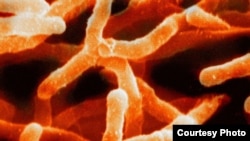We may only be aware of one one-thousandth of one percent of all the species on Earth, according to a study which set out to calculate the number of microbial species on the planet
Writing in the Proceedings of the National Academy of Sciences, researchers from Indiana University at Bloomington, looked at databases of microbial, plant and animal life to come to their conclusion.
"Estimating the number of species on Earth is among the great challenges in biology," said Jay Lennon, an author of the paper. "Our study combines the largest available datasets with ecological models and new ecological rules for how biodiversity relates to abundance. This gave us a new and rigorous estimate for the number of microbial species on Earth.
“Until recently, we’ve lacked the tools to truly estimate the number of microbial species in the natural environment,” he added. “The advent of new genetic sequencing technology provides an unprecedentedly large pool of new information.”
The researchers say that for animals and plant life, something called scaling laws can be used to accurately estimate the number of species. This is done by assessing the amount of food and other essentials that are present to support life.
Many previous estimates “simply ignored” microbial life -- life too small to be seen, that includes bacteria and one-celled organisms -- or used questionable methods of counting them researchers said.
But scaling laws, it turns out, can also be used for microbes, researchers said, noting that there are new datasets on human-related microorganisms as well as aquatic and terrestrial microbes which helped researchers come to their conclusions.
"Until now, we haven't known whether aspects of biodiversity scale with something as simple as the abundance of organisms," said Kenneth Locey, another author of the study. "As it turns out, the relationships are not only simple but powerful, resulting in the estimate of upwards of 1 trillion species."
Identifying all of Earth’s microbial life will be a huge challenge given the Earth Microbiome Project, a worldwide effort to identify microbes, has only identified “less than 10 million species.”
"Of those cataloged species, only about 10,000 have ever been grown in a lab, and fewer than 100,000 have classified sequences," Lennon said. "Our results show that this leaves 100,000 times more microorganisms awaiting discovery -- and 100 million to be fully explored. Microbial biodiversity, it appears, is greater than ever imagined."





